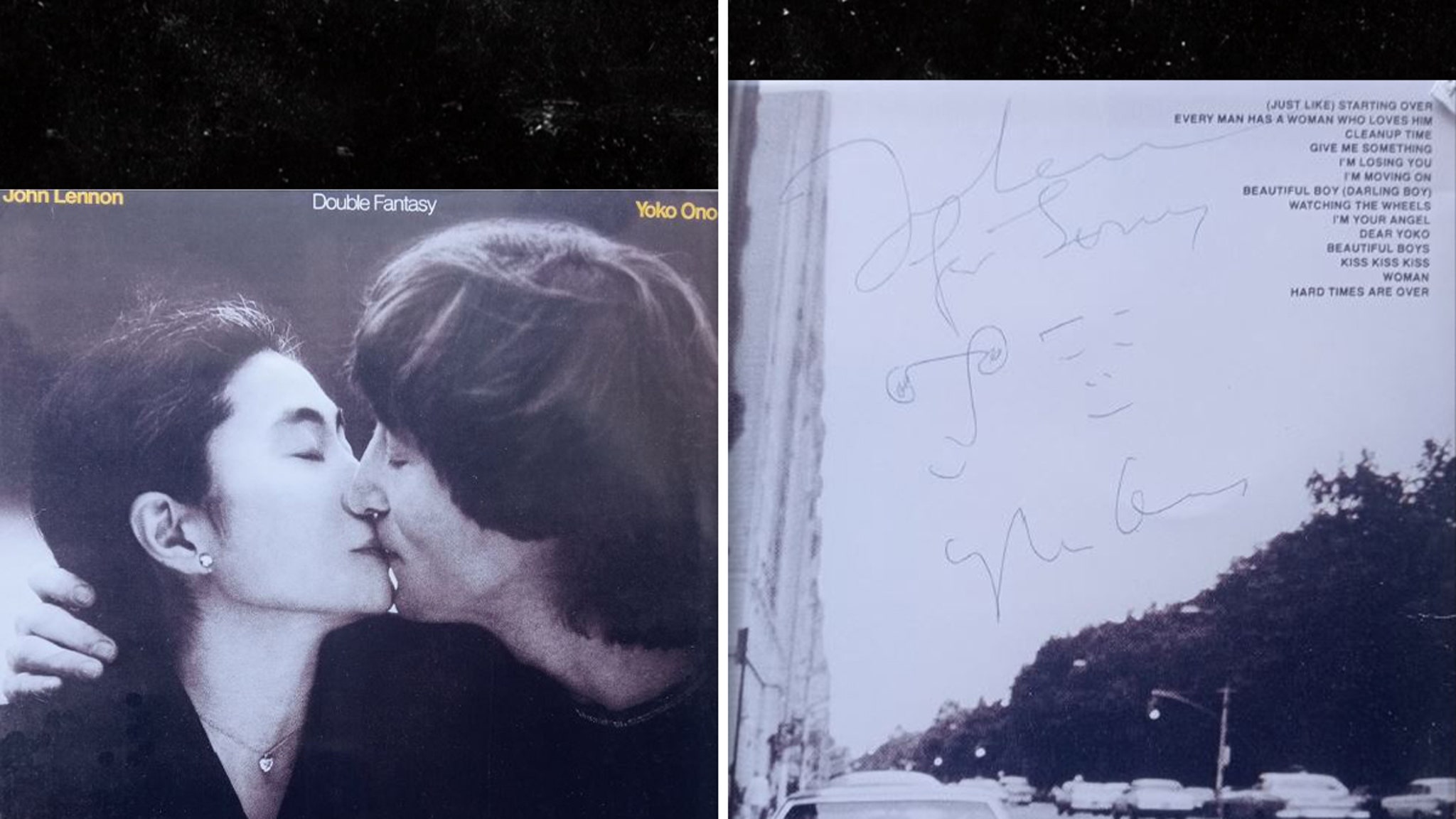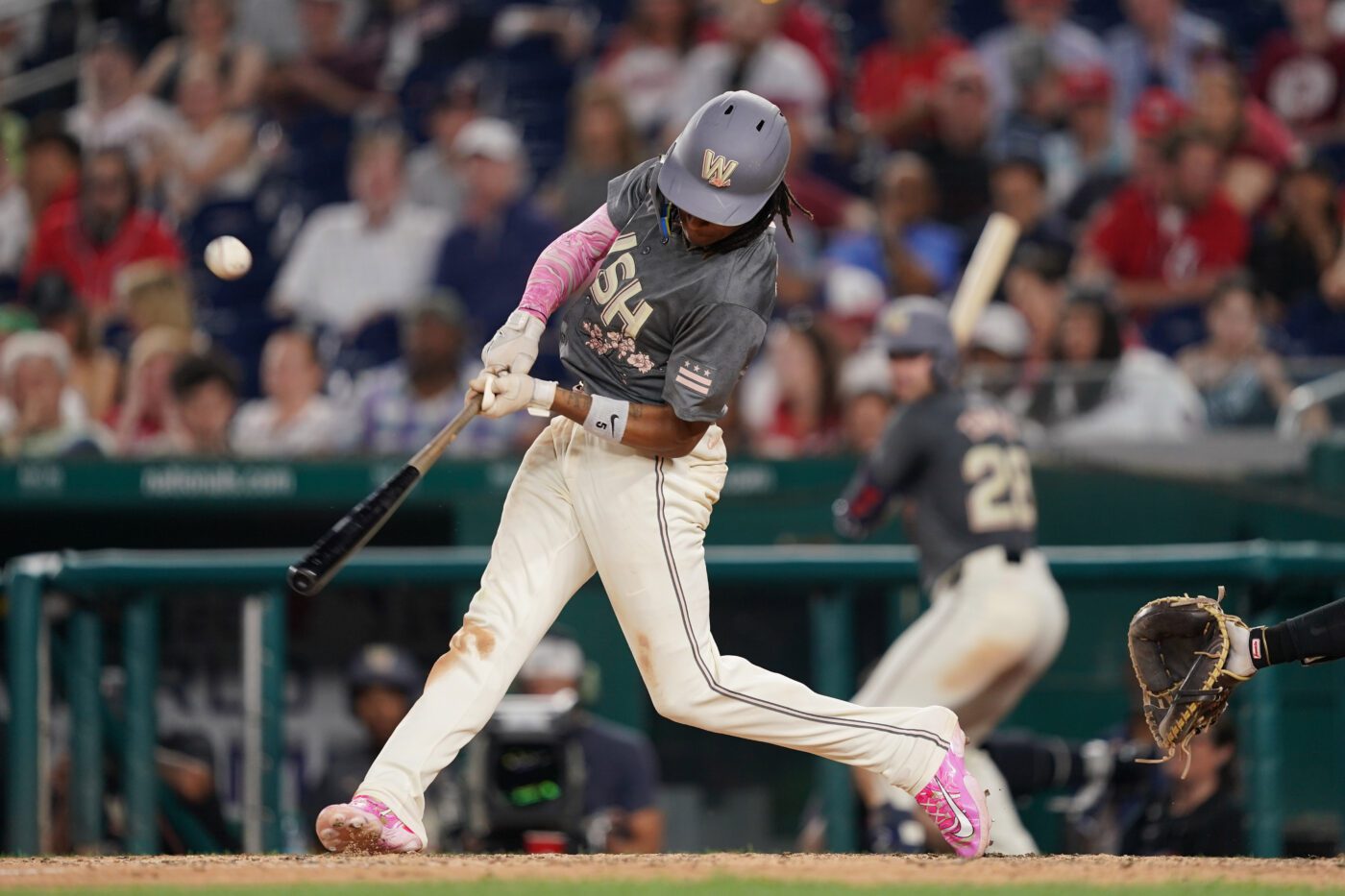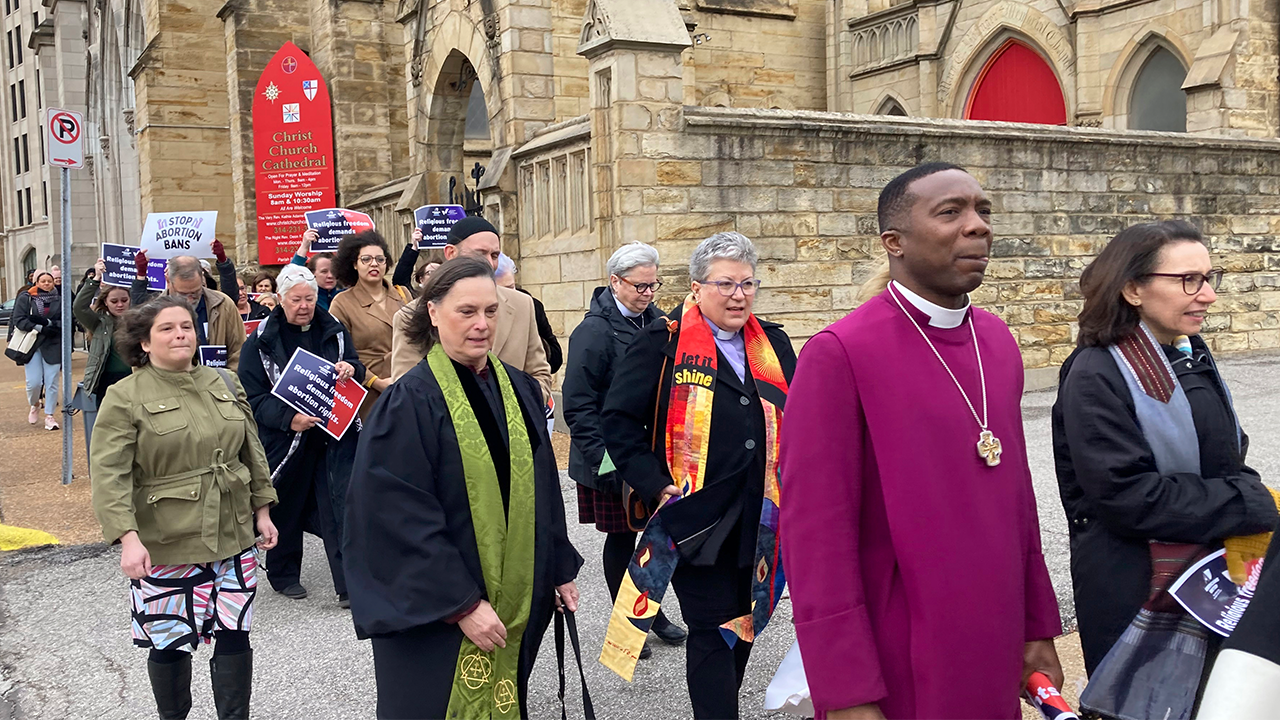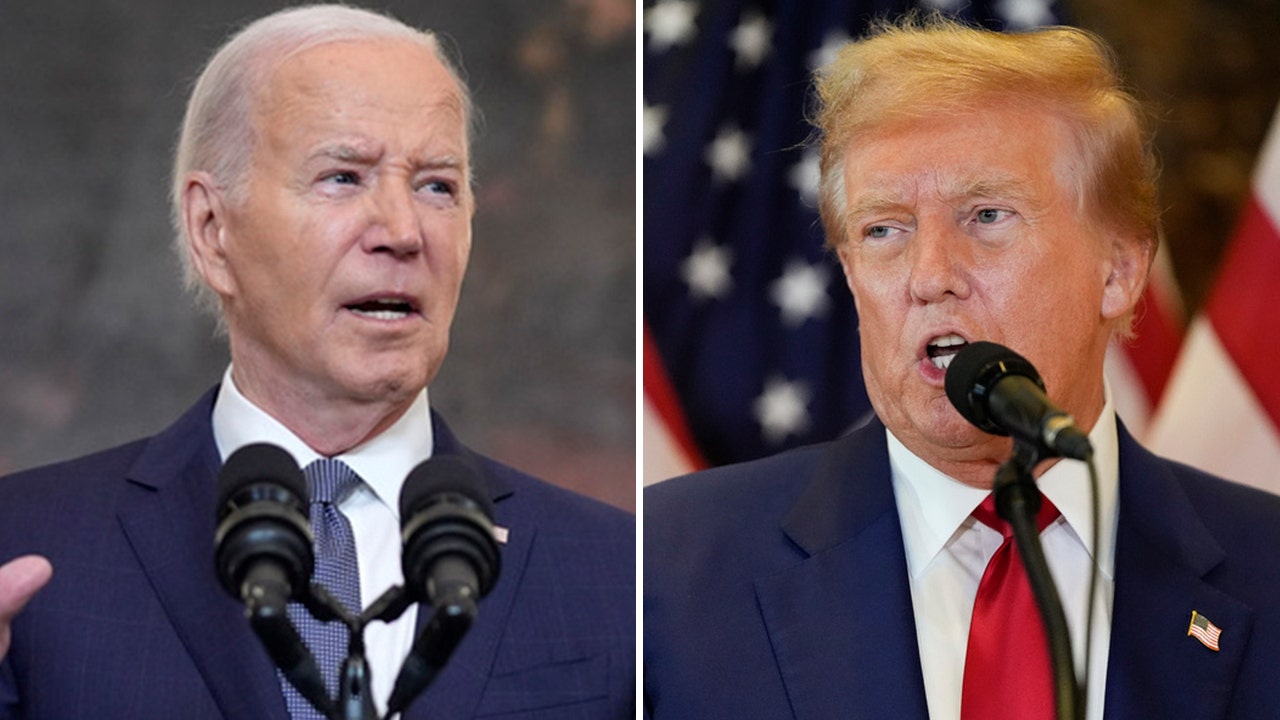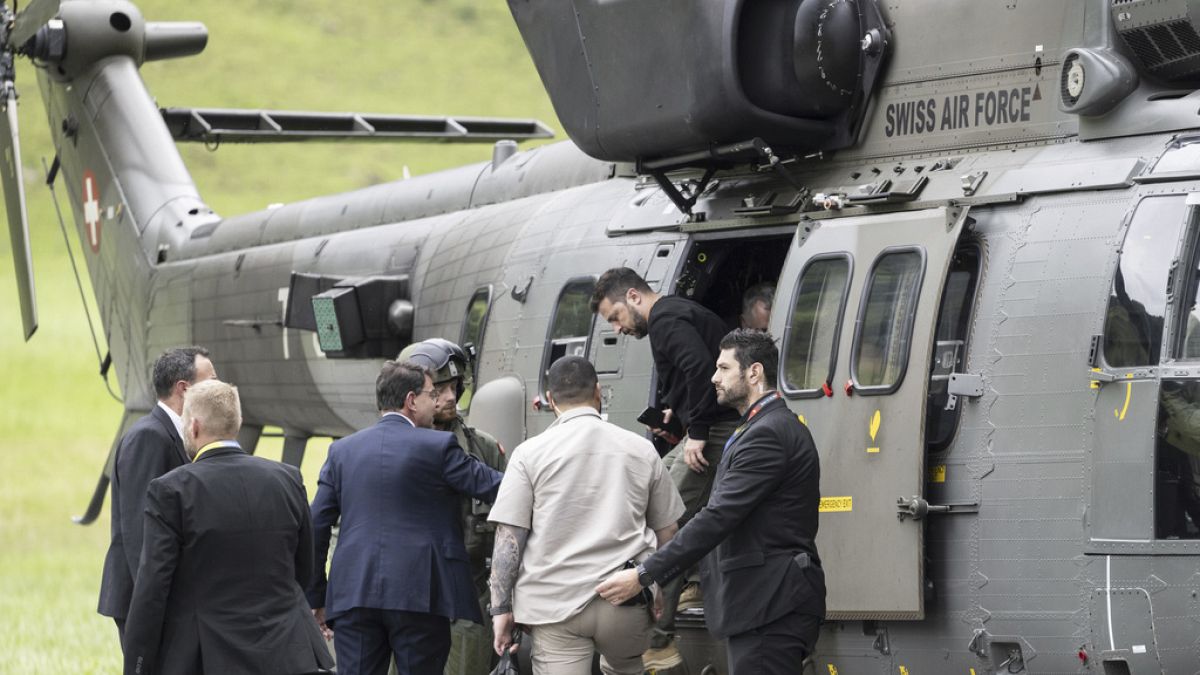New Jersey
New Jersey animal shelter’s ‘field trips’ let you bond with adoptable dogs

More about the program
FOX 5 NY’s Jennifer Williams has the story.
NEW JERSEY – Through the “Field Trip” program at the St. Hubert’s Animal Welfare Center in Madison, New Jersey – you can hang out with a dog up for adoption, without the long-term commitment.
“We kind of joke that it’s like a ‘gateway drug,’” said Sarah Sangree, the director of Community Engagement at St. Hubert’s Animal Welfare Center. “Someone comes in for a field trip, and they see what a nice place we have, and they’ve taken a wonderful dog out and then maybe they ask us about the dog.”
“We tell them about fostering, and maybe then they want to take that dog home to foster,” Sangree said. “If someone takes a field trip with a dog and loves the dog, we’ll say, ‘you want to take the dog home for the weekend?’ So we just have all different ways to kind of promote our animals and make it as easy as possible for people to participate.”
The program started back in 2019 as another way to give the dogs a break from being in their kennels.
“I can see them immediately relax in the car ride at home,” said participant, Dayanna Valverde. “I give them a chance to just enjoy a home environment for a few hours. I’ve just been doing some local parks, but primarily home, just so they can have that feeling, and they do just about anything, play with us, we buy them toys, we dress them up, we just let them cuddle and decompress – and my favorite part is when they nap.”
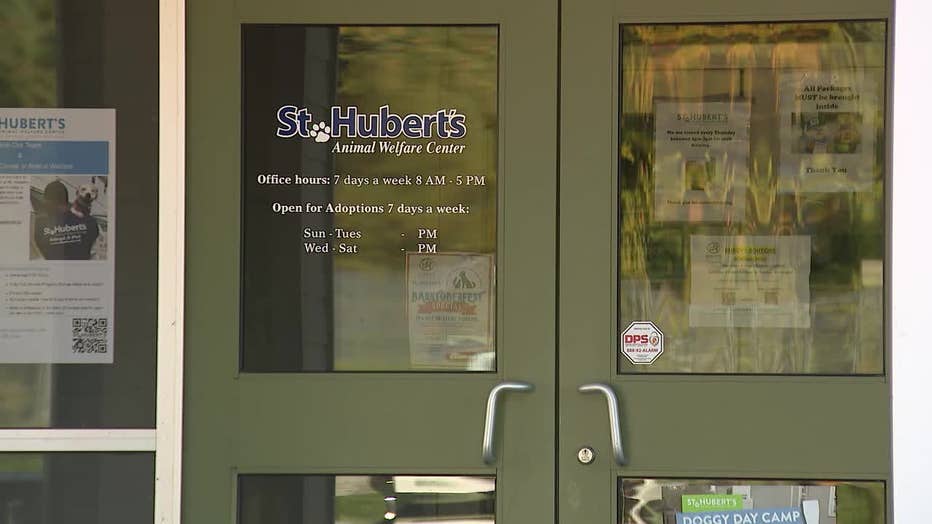
Valverde added when you know the field trip is working, calling the experience to build a relationship with a dog and seeing them find a forever home amazing – and sometimes that’s going home with the same person who decided to brighten their day in the first place.
Field trips are by appointment only. For more info, click HERE.

New Jersey
New Jersey couple just sitting in their backyard when massive object falls from sky 'out of nowhere'
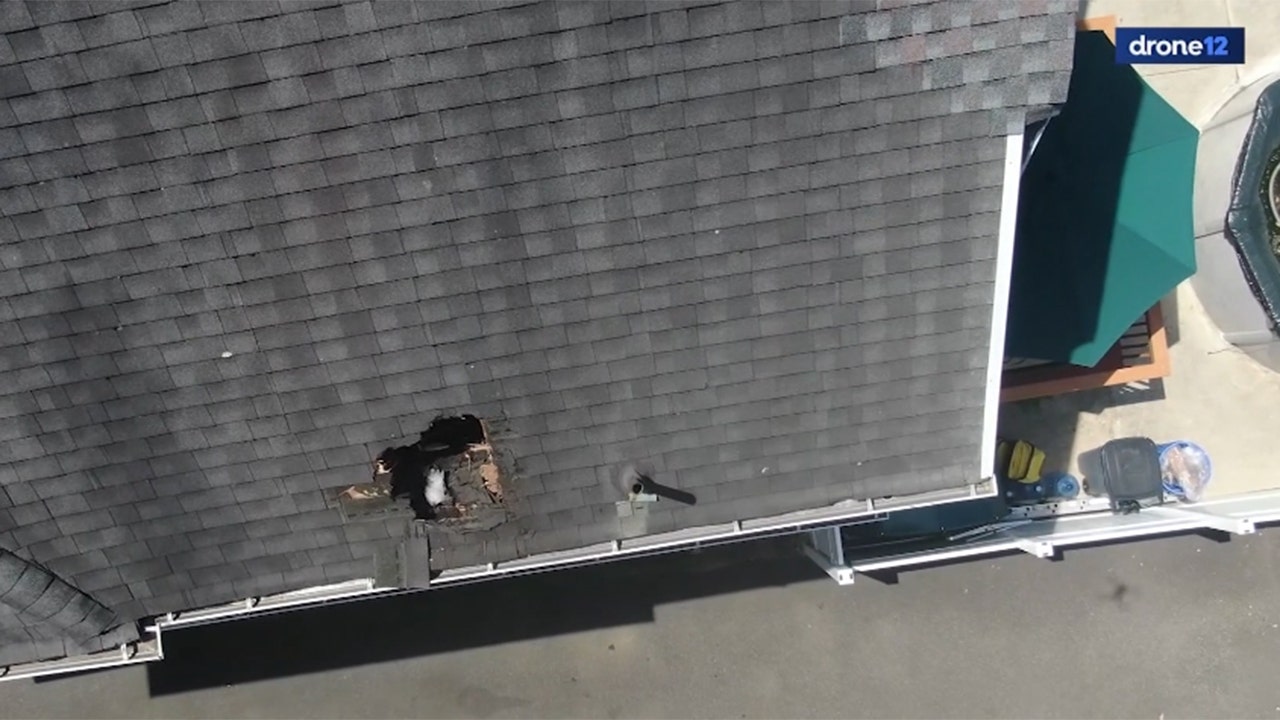
The roof of a New Jersey home was severely damaged in a chilling incident when a large chunk of ice fell from above on Wednesday.
Paul and Sabrina Gomez were sitting in the backyard of their Patterson home at around 9:30 p.m. when the projectile came out of nowhere and left a gaping hole in the roof, the New York Post reported. The couple were seated at a table less than 12 feet from the impacted area.
“Out of nowhere you just hear a hollow sound coming down and honestly we didn’t think anything of it and then you just hear a big DOOOOSH!” Sabrina Gomez told News 12 New Jersey.
NJ POLICE EYE ABSENT PARENTS AFTER YOUNG MOBS UPEND FAMILY-FRIENDLY VACATION HOT SPOTS
The family rushed to the front of their house, where they took a video of pieces of ice spread out all over the driveway. The home sits directly underneath several flight paths, according to the news outlet.
A view of a massive chunk of ice that reportedly fell from a plane into the home of a family in New Jersey on June 12, 2024. (News 12 NJ)
“When we look up, it’s basically like a plane flying by,” said Sabrina Gomez.
The couple has filed a claim with the Federal Aviation Administration (FAA) to investigate. They believe the ice fell from a plane passing overhead.
The FAA told Fox News Digital that: “Generally speaking, we investigate reports that we receive about incidents such as this.”
The chilling incident comes nearly a year after a chunk of ice weighing between 15 and 20 pounds struck a Massachusetts home, according to the Associated Press.
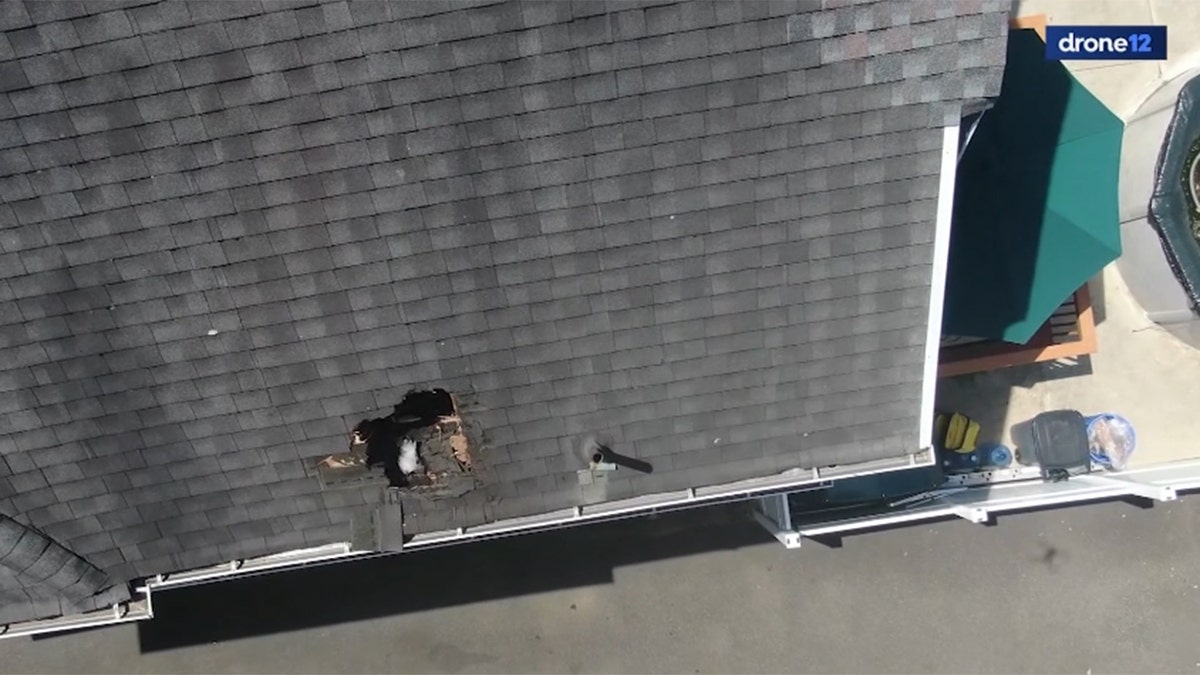
A view of a massive chunk of ice that reportedly fell from a plane into the home of a family in New Jersey on June 12, 2024. (News 12 NJ)
CLICK HERE TO GET THE FOX NEWS APP
Jeff Ilg said he and his wife, Amelia Rainville, suspect the ice fell off an airplane traveling to Boston Logan International Airport. The ice chunk, which Ilg said was initially estimated to be 15 to 20 pounds and hit their home in Shirley, 50 miles west of Boston.
“We heard an explosion, basically,” he said. “The loudest pop, bang I’ve ever heard.”
The Associated Press contributed to this report.
New Jersey
States struggle with unreliable federal funding for making sure elections are secure • New Jersey Monitor

WASHINGTON — The federal government has sought to bolster election security for years through a popular grant program, but the wildly fluctuating funding levels have made it difficult for state officials to plan their budgets and their projects.
Rising misinformation and disinformation about elections, often fueled by conspiracy theories, as well as threats against election workers, make the grants especially important, according to elections officials.
But U.S. House Republicans are seeking to eliminate funding for election security grants — known as Help America Vote Act, or HAVA grants — in this year’s appropriations process, a move they unsuccessfully attempted last year as well.
“We continue to unnecessarily risk the very integrity of our elections and American democracy,” Georgia Democratic Rep. Sanford Bishop said Thursday during committee debate on the funding bill.
Bishop, a senior member of the House Appropriations Committee, said he was “concerned about the outdated and the insecure voting systems around the country that pose a very, very serious threat to our national security and to our democratic system.”
“It is irresponsible to ignore the wake-up call,” Bishop added. “Our nation’s election systems are currently and constantly under attack by foreign actors that are threatening our democratic values.”
The bill was approved by the GOP-led House Appropriations Committee with no money in it for the grants.
Gideon Cohn-Postar, legislative director at Issue One & Issue One Action, said during an interview with States Newsroom that while the grants have traditionally been bipartisan, several factors have affected backing for the program in recent years.
“It remains something that many Republicans in both the House and the Senate support,” Cohn-Postar said. “But it’s also been caught up, I think, in some of the false information about elections that began to spread in 2020.”
Former President Donald Trump, now the presumptive Republican presidential nominee, has continued to falsely claim that the 2020 election was stolen.
Issue One writes on its website that the organization strives to “unite Republicans, Democrats, and independents in the movement to fix our broken political system and build an inclusive democracy that works for everyone”.
Grant funding decreases
Congress approved $55 million in election security grants during the last appropriations process, which wrapped up this spring. That action came after the Republican-controlled House, which proposed zero dollars, conferenced with the Democratic-controlled Senate, which had proposed $75 million in funding.
That final funding level was a decrease from the $75 million that Congress approved in both fiscal 2023 and fiscal 2022.
Congress didn’t approve any election grant funding in the annual appropriations bill during fiscal year 2021. However, that followed lawmakers’ allocation of $425 million in the prior year’s bill as well as an additional $400 million in one of the COVID-19 emergency spending bills.
Cohn-Postar said that several states have sought to make their HAVA grants last more than one year by spending less than they receive, or saving the money up for bigger projects.
Louisiana, for example, hasn’t spent any of its election security grant funding since 2018, in preparation for overhauling its election system. New Hampshire passed a state law that collects the grant funding in an endowment and then only spends a portion of that each year.
But that “careful” budgeting and uncertainty about how much grant funding Congress might provide in the next year has led federal lawmakers to look at states’ use of the grants skeptically, Cohn-Postar said.
“The key thing we’ve come across … is about half of the states have only spent about half of their HAVA grants,” Cohn-Postar said. “And that gets brought up in every conversation that Congress has about these grants. They say, ‘Hey, why should we appropriate more if you haven’t spent?’”
Congress, he said, sometimes uses states’ “careful, thoughtful budgeting as an excuse to not give them money.”
Republicans in Congress are also looking to reduce federal spending overall and have made cuts throughout many of the dozen annual spending bills, including the Financial Services bill, which includes the HAVA grants.
‘Incredibly important’ in Maine
Maine Secretary of State Shenna Bellows said during an interview the grants “have been incredibly important, especially in the absence of sustainable elections funding from the federal government.”
“We have seen the rapid evolution of cybersecurity threats and threats against election infrastructure over the last several years,” Bellows said. “As the threats evolve, so must our preparedness. The election security grants are fundamental to our ability to make investments in improvements in our central voter registration system and cybersecurity protections for that system.”
Congress’ inability or unwillingness to create a predictable, stable funding program for states to administer federal elections is “unfortunate,” she said.
“We are very proud that Maine has always enjoyed safe, free and secure elections,” Bellows said. “But make no mistake, the lack of sustainable ongoing federal funding is a potential vulnerability in the future.”
Washington state Elections Director Stuart Holmes said in an interview he plans his annual budget around not getting HAVA election security grants and is pleasantly surprised when Congress does provide the funding.
“Through my entire career, there’s only been two rounds of HAVA that were significant investments into elections,” Holmes said. “So it’s a great surprise to get an extra million dollars at the beginning of the year. But it does make it pretty much impossible to prepare and plan for anything if you have to spend it.”
The grants don’t expire at the end of the fiscal year and the federal government doesn’t claw back unspent funding, allowing the states to take different approaches to how they use the money.
Holmes said during his interview with States Newsroom that the funding approved in fiscal 2020 allowed the state to “create an entire team of cybersecurity professionals to be dedicated to protecting our infrastructure.”
“In the state of Washington, we have a centralized voter registration and election management system, and never before had we had dedicated election professionals that are watching the logs, preparing our system, testing our system and collaborating with other professionals to do testing,” Holmes said. “So we’re in a better position than we’ve ever been.”
Even so, he said, “local election officials would certainly look forward to a stable funding source from the federal government as it relates to federal elections.”
New Hampshire election fund
New Hampshire Secretary of State David M. Scanlan said when Congress passed the HAVA program in 2002, it told states the funding was primarily to set up a statewide voter registration database, ensure every polling place had accessible voting equipment, provide poll workers with training and set up voter education programs.
The New Hampshire Legislature at the time told the secretary of state to use the initial allocation from Congress to meet the requirements, but then to establish an election fund with the remaining money.
Originally, the secretary of state could use one-twentieth of the total funding in the account for annual costs of maintaining the federal mandates, but that is currently one-twelfth of the total amount in the fund.
“New Hampshire has been doing a good job with the money that we have, but there’s no question that the funds have helped us put in place security measures for our electronic systems,” Scanlan said.
The state, he said, has used its federal election security grants to hire vendors that specialize in keeping the electronic systems safe.
When New Hampshire set up a new voter registration database, the state used the funding to ensure none of the software included anything nefarious.
“We’ve really been making sure that the systems that we’re building are clean and that there’s not something malicious lurking in the shadows,” Scanlan said. “We’ve taken some really good steps that give me real confidence that our systems are in good shape.”
Advocating for ‘consistent, reliable federal funding’
JP Martin, deputy communications director for the Arizona secretary of state, declined States Newsroom’s request for an interview with the secretary of state, offering only to provide written responses to questions on HAVA election security grants.
Martin wrote in an email that “fluctuating levels of federal funding have significantly impacted our strategic planning and budgeting.”
“The uncertainty of future allocations compels us to be cautious with expenditures, focusing on priorities such as enhancing physical security measures for voting equipment,” Martin wrote. “For instance, securing equipment in cages—now requires a liftgate-equipped truck due to their increased weight—demonstrates the challenges of managing technological and budgetary constraints under limited HAVA funding.”
Congress declining to provide election security grants in the future “could significantly strain Arizona’s election infrastructure,” he wrote.
“Currently, the state is under a hiring freeze, and our focus remains on supporting counties, especially with the recent changes such as the date of the primary and legislation extending ballot curing to weekends,” Martin wrote. “We are prioritizing increased cybersecurity training and advocating for consistent, reliable federal funding to ensure the smooth administration of elections, emphasizing the necessity of sustained financial support from Congress.”
New Jersey
New Jersey lottery player wins $1 million in Friday’s Mega Millions
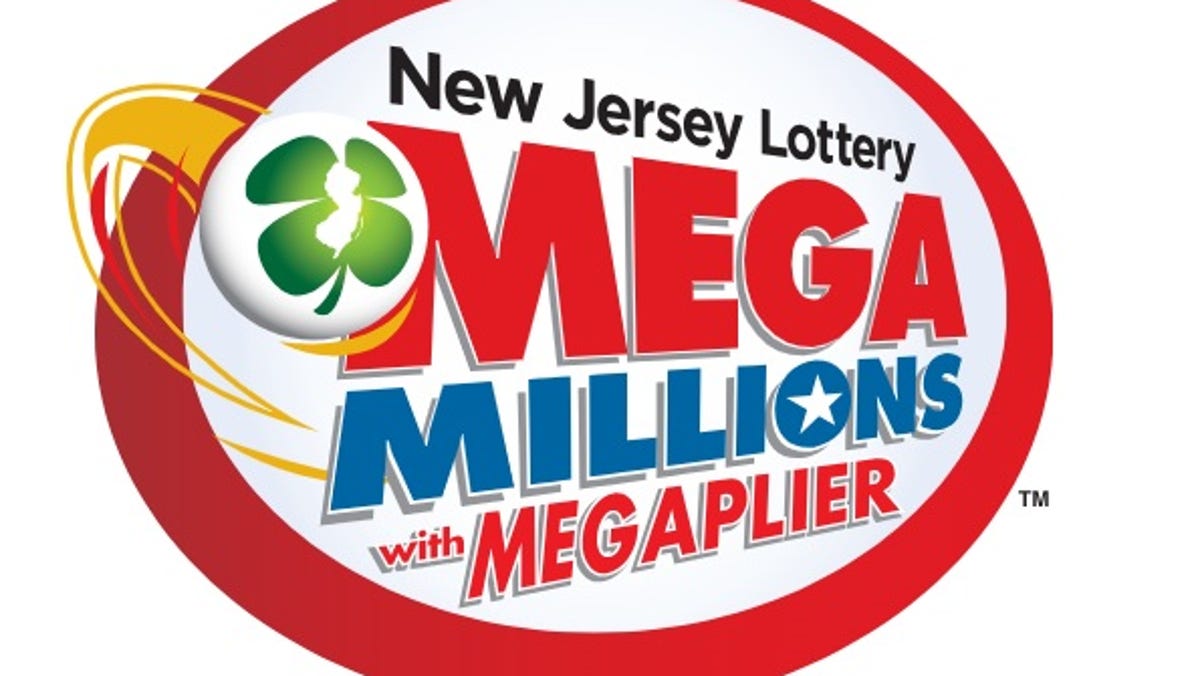
Check your tickets, New Jerseyans! A lottery player won $1 million in Friday’s Mega Millions
A New Jersey lottery player won a $1 million Friday night playing the Mega Millions.
While no one won the jackpot, a ticket sold in the Garden State matched the five white balls to win the million, according to the Mega Millions website.
It was not immediately released where in NJ the winning the ticket was sold.
The jackpot was last won on June 4 when a lottery player in Illinois won $552 million – the ninth largest Mega Millions ever.
Mega Millions hits $61 million
With no jackpot winner, the grand prize will climb to an estimated $61 million with a cash option of $29.3 million for Wednesday night’s drawing.
Mega Millions winning numbers for 6/14/24
The Mega Millions winning numbers for Friday, June 14, 2024 were: 1 – 25 – 26 – 31 – 65 and Megaball 2. The Megaplier was 3x.
Looking for an edge? These Mega Millions numbers are drawn the most
When is next Mega Millions drawing?
Mega Millions drawings are held every Tuesday and Friday at 11 p.m.
More: $1.35 billion Mega Millions winner sues mother of his child for disclosing jackpot win
How do I play Mega Millions?
The cost is $2 per ticket, but you can add the Megaplier for $1, which will increase the amount of your potential prize up to five times the original prize (except for the jackpot).
Each player selects five numbers from 1 to 70 for the white balls and one number from 1 to 25 for the Mega Ball. However, you can also have the lottery machine generate a random Quick Pick for you. You don’t need to be a U.S. citizen or a resident of a particular state where you purchase your ticket.
More: ‘It still doesn’t feel real’ – New York man claims $476M Mega Millions jackpot
How many balls do I need to match for Mega Millions prize?
You can win $2 for the matching just one – the Mega Ball. Short of the jackpot, you can win up to $1 million for matching all five white balls (except in California). You can check all the prize payouts on the Mega Millions site here.
Beware: No, a lottery jackpot winner isn’t giving you money. How to spot a scammer
Where is the Mega Millions available?
You can play the game in 45 states plus the District of Columbia and the U.S. Virgin Islands. The states not offering Mega Millions are: Alabama, Alaska, Hawaii, Nevada and Utah.
Lucky? These are the states with the most Mega Millions jackpot winners
Where can you buy lottery tickets?
Tickets can be purchased in-person at gas stations, convenience stores and grocery stores. Some airport terminals may also sell lottery tickets.
You can also order tickets online through Jackpocket, the official digital lottery courier of the USA TODAY Network, in these U.S. states: Arizona, Arkansas, Colorado, Idaho, Massachusetts, Minnesota, Montana, Nebraska, New Hampshire, New Jersey, New Mexico, New York, Ohio, Oregon, Texas, Washington D.C. and West Virginia. The Jackpocket app allows you to pick your lottery game and numbers, place your order, see your ticket and collect your winnings all using your phone or home computer.
NJ lottery: Where does all the ticket sales money go?
What is deadline for buying Mega Millions tickets?
The deadline for purchasing a Mega Millions ticket varies by state so don’t wait until the last minute. It can be 15 minutes to an hour or more before the actual drawing. For some third-party lottery apps, the deadline can be closer to two hours before the drawing. For example, Jackpocket in New Jersey has a deadline of 9:15 p.m. for the 11 p.m. ET drawing.
Click here to check the deadline for where you live.
What are my odds of winning the lottery?
Playing the Mega Millions can be exciting, but just don’t go spending those millions before you win.
The odds of winning the jackpot are 302,575,350-to-1. The odds to match all five white balls are 12,607,306-to-1.
Unlucky? Here are 13 crazy things more likely to happen than winning the lottery
What does cash option mean?
The major lotteries in the United States offer two jackpot payout options: annuity and cash.
The annuity option is paid out over time. There is an immediate payment and then 29 annual payments after that, increasing by 5% each year. The cash option is significantly lower than the advertised jackpot, but it is paid in a lump sum. You don’t have to wait decades for all the money.
Can a jackpot winner remain anonymous?
In some states, like New Jersey, you can win a lottery anonymously. That wasn’t always the case, but now winners are able to stay anonymous under a law that was signed by Gov. Phil Murphy. In other states, a winner’s name and hometown are a matter of public record. Check with your state lottery for more information.
What are the Top 10 Mega Millions jackpots?
Here are the Top 10 Mega Millions jackpots ever:
- $1.602 billion, Aug. 8, 2023: Won in Florida
- $1.537 billion, Oct. 23, 2018: Won in South Carolina
- $1.348 billion, Jan. 13, 2023: Won in Maine
- $1.337 billion, July 29, 2022: Won in Illinois
- $1.128 billion, March 26, 2024: Won in New Jersey
- $1.05 billion, Jan. 22, 2021: Won in Michigan
- $656 million, March 30, 2012: Three winners in Illinois, Kansas, Maryland
- $648 million, Dec. 17, 2013: Two winners in California, Georgia
- $543 million, July 24, 2018: Won in California
- $536 million, July 8, 20116: Won in Indiana
What are the Top 10 Mega Millions jackpots?
Here are the Top 10 Mega Millions jackpots ever:
- $1.602 billion, Aug. 8, 2023: Won in Florida
- $1.537 billion, Oct. 23, 2018: Won in South Carolina
- $1.348 billion, Jan. 13, 2023: Won in Maine
- $1.337 billion, July 29, 2022: Won in Illinois
- $1.128 billion, March 26, 2024: Won in New Jersey
- $1.05 billion, Jan. 22, 2021: Won in Michigan
- $656 million, March 30, 2012: Three winners in Illinois, Kansas, Maryland
- $648 million, Dec. 17, 2013: Two winners in California, Georgia
- $552 million, June 4, 2024: Won in Illinois
- $543 million, July 24, 2018: Won in California
Jackpocket is the official digital lottery courier of the USA TODAY Network. Gannett may earn revenue for audience referrals to Jackpocket services. Must be 18+, 21+ in AZ and 19+ in NE. Not affiliated with any State Lottery. Gambling Problem? Call 1-877-8-HOPE-NY or text HOPENY (467369) (NY); 1-800-327-5050 (MA); 1-877-MYLIMIT (OR); 1-800-GAMBLER (all others). Visit jackpocket.com/tos for full terms and conditions.
-

 News1 week ago
News1 week agoIsrael used a U.S.-made bomb in a deadly U.N. school strike in Gaza
-

 World1 week ago
World1 week agoFrance to provide Ukraine with its Mirage combat aircraft
-

 World1 week ago
World1 week agoWorld leaders, veterans mark D-Day’s 80th anniversary in France
-

 World1 week ago
World1 week agoRussia-Ukraine war: List of key events, day 833
-

 Movie Reviews1 week ago
Movie Reviews1 week agoInsane Like Me? – Review | Vampire Horror Movie | Heaven of Horror
-
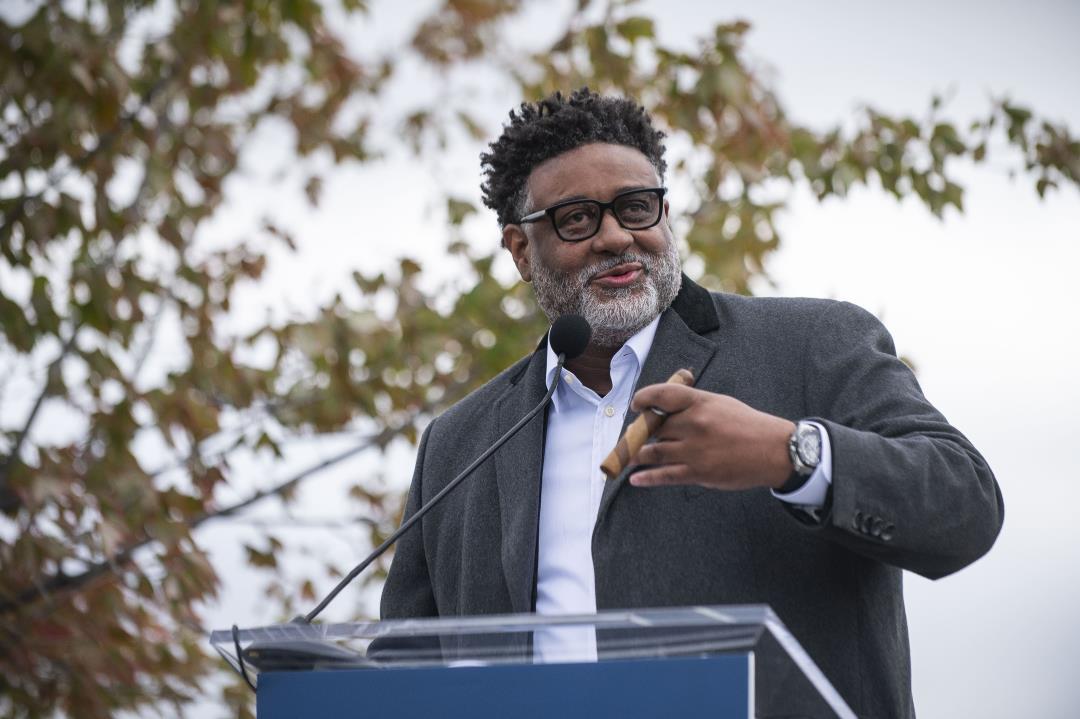
 News1 week ago
News1 week agoNonprofit CFO Accused of 'Simply Astonishing' Fraud
-
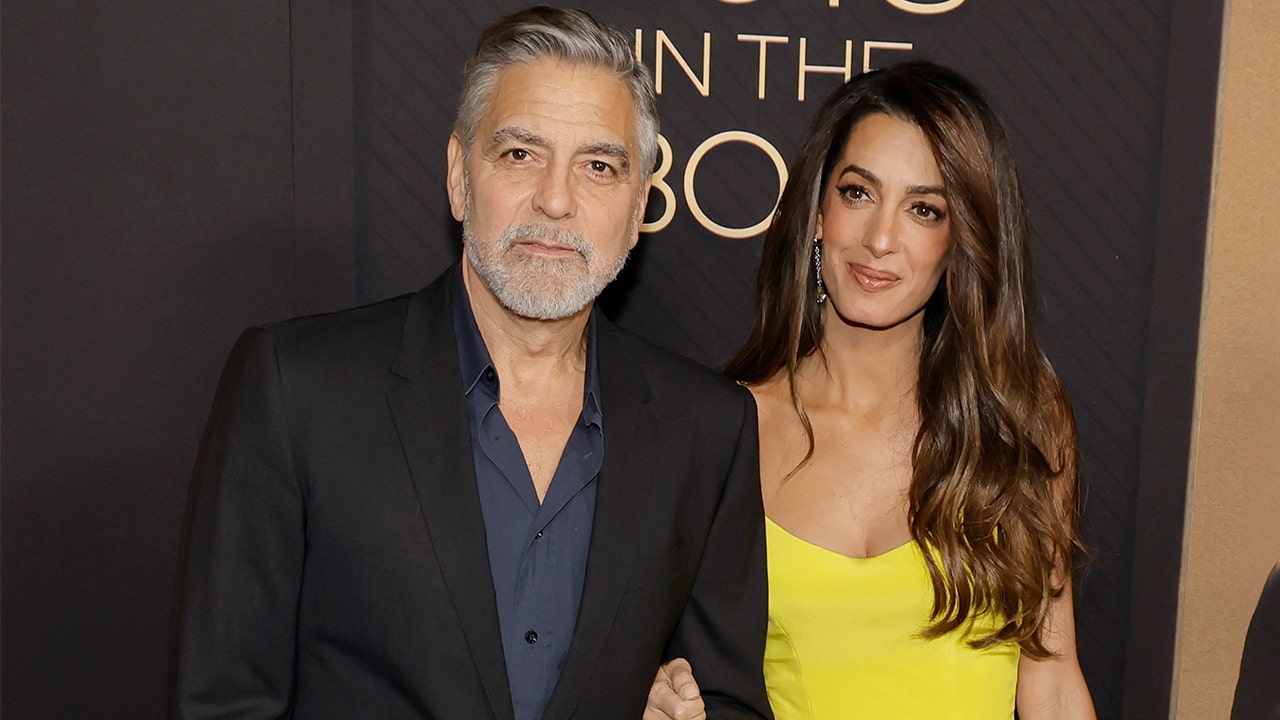
 Politics1 week ago
Politics1 week agoGeorge Clooney called White House to complain about Biden’s criticism of ICC and defend wife’s work: report
-

 Politics1 week ago
Politics1 week agoNewson, Dem leaders try to negotiate Prop 47 reform off California ballots, as GOP wants to let voters decide





